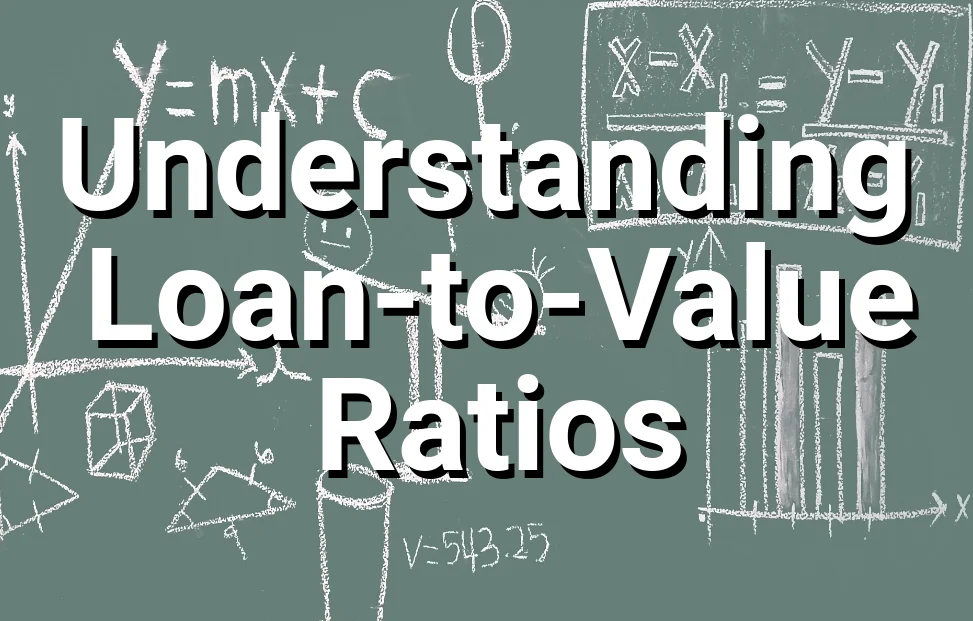The loan-to-value ratio is essential to lenders, borrowers, and financial institutions. It can have an effect on mortgage payments, interest rates, and can even be the difference between loan approval and denial.
If you are seeking a mortgage loan, it’s essential that you understand the basics of loan-to-value ratios, often called “LTV.” With this knowledge, you’ll be better equipped to find the right loan for your personal situation.
Loan-to-Value Ratio Explained
What is a Loan-to-Value Ratio?
Loan-to-value is essentially a representation of the total amount of the loan compared to the total value of the property. If, for example, you use a $1 million loan to purchase a $1 million property, the loan would have a 100% loan-to-value ratio. (For the math enthusiasts, it’s actually a percentage and not a ratio; to be a true ratio it would be expressed as 1 to 1 or 1/1, not 100%. However, it’s still called a “ratio” in the mortgage industry.)
If you had a $200,000 downpayment and needed $800,000 to purchase the same house, your LTV would be 80%. (800,000 is 80% of 1 million.)
The numbers we cited above are pretty easy to figure in your head, but rarely do you have numbers as well-rounded as the above example. In the real world, the property values look more like $1,295,567, which complicates the numbers. Calculating the loan-to-value ratio, however, is still fairly simple. Simply divide the loan amount by the property value, then move the decimal point pack two spaces.
Simple Example:
Loan Total: $900,000
…divided by…
Property Value: $1,000,000
Total: 0.90
LTV: 90%
Realistic Example:
Loan Total: $1,016,812
…divided by…
Property Value: $1,295,567
Total: 0.785
LTV: 78.5%
Why Lenders Care About Loan-to-Value Ratio
Why do lenders care so much about a simple ratio in the lending process? Shouldn’t they be more concerned with the loan total, credit scores, and the borrower’s income? While those are certainly essential factors, loan-to-value can actually be a trustworthy indicator for analyzing the risks of a loan. (Not the only indicator, but an important one.)
Calculating and correlating the impact of loan-to-value and default risk is extremely complex, but numerous studies have found that as LTV rises, the risk of default rises as well. This theory is backed by both domestic and foreign research. According to a study from Spanish researchers, higher LTV is associated with greater risk for default. Specifically, they found that a “sharp increase” in defaults is seen when LTV is above 80%.
With many similar studies at their disposal, lenders are hesitant to loan money when the LTV is high.
Qualifying for High LTV Loans
If you don’t have a large down payment, and therefore need a high LTV loan, you should be prepared with documents and information that will give greater reassurance to lenders. While nothing can guarantee approval, taking these steps could increase your chances.
Try to enhance your credit score as best you can. Lenders will want to see a hearty credit score from the major agencies, so making efforts to remove false negative items, paying bills on time or early, and reducing your overall debt load could make a difference.
Depending on the program you use, you may have to accept that you will pay a higher interest rate or mortgage insurance (more on insurance below) for a certain period until you pay off a portion of the loan.
There are many government programs that offer high LTV loans, including loans that cover 100% of the purchase price. (100% LTV.) If you and the property in question are eligible, you may be able to find 100% financing from the Veterans Administration, the USDA, and other government institutions. These offices don’t actually make the loan, but simply provide insurance to lenders to encourage home mortgages for certain situations, such as veteran’s benefits or rural development.
The Relationship Between Loan-to-Value and Mortgage Insurance
Mortgage insurance is another factor that comes into play when discussing loan-to-value ratios. This is basically an added payment that stays with the mortgage until a certain level of equity is reached. In most cases, if you have reached 20% equity, (you own 20%, the bank owns 80%) then you will no longer have to pay mortgage insurance.
Therefore, if you have an 80% LTV loan, you will likely not have to pay mortgage insurance. However, if you have a 90% LTV loan, you will have to pay mortgage insurance until you gain another 10% in equity through monthly payments.
Over 100% LTV is Possible

It may surprise you, but you can actually find loans for over 100% of the property value. In most cases, these loans are used to make improvements to the home, allowing you to make the house move-in ready.
For example, if the home needs a new roof and foundational improvements, you may be able to get a loan for 105%, covering the purchase price plus any costs for home improvements.
For obvious reasons, these loans are particularly risky to lenders. As we demonstrated above, having an LTV around 80% gives lenders the best reassurance that there will be no default on the loan. However, if the loan is over 100% and the bank has to foreclose on the house, the bank will be unable to recuperate the entirety of the loan. (To be fair, most foreclosure sales bring a fraction of the loan value, so they rarely help the bank recover all of their money and serve to essentially reduce losses.)
If you are considering a high LVT loan, it’s essential that you talk with a qualified mortgage expert. These loans can help you become a homeowner, but you need to understand the risks before you make any decisions.
Contact San Diego’s Mortgage Experts Today
Contact San Diego Purchase Loans and we’ll help you understand the details of loan-to-value ratio and other important factors in the mortgage process.
With a dedication to common-sense underwriting, we can help increase your chances of mortgage approval with terms that meet your needs!


